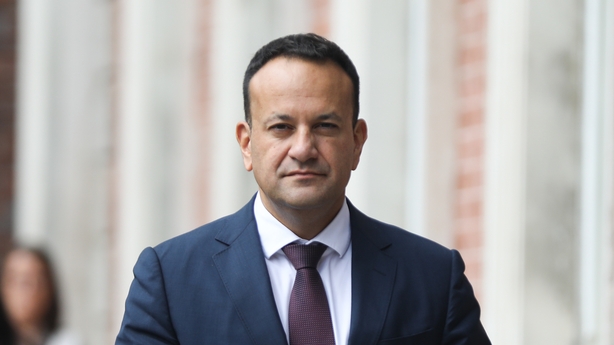The Government is weighing up the introduction of a temporary "no fault" ban on evictions, the Tánaiste has confirmed, but he said there were drawbacks with such a measure.
Speaking during Leaders Questions, Leo Varadkar said the "obvious advantage" is that it results in fewer people losing their homes.
However, he added that the "obvious disadvantage is that when it ends, you may see a glut of homelessness occurring at that time which is harder to deal with".
"Indeed it may accelerate the number of landlords leaving the sector and may result in a higher level of homelessness next year," he said.
He was responding to Labour leader Ivana Bacik, who said that a temporary evictions ban could be introduced under the constitution."
Ms Bacik said she was supporting pensioners facing eviction in her own constituency and her office was trawling Daft.ie to help students who could not find accommodation.
New research published earlier today by Threshold, the national housing charity and the Citizen's Information Board has found that tenancy termination is the most prevalent issue facing private renters, with vulnerable clients on fixed incomes most likely to be adversely impacted.
The issue of rent increases also ranked highly for renters, especially those in receipt of housing support, with children or with a fixed income.

The research finds these issues are experienced by renters regardless of age or background.
The findings are based on 90,000 queries Threshold received from renters over a two-year period.
The charity says it shows the private rental sector is putting an increasing number of tenants in a vulnerable position.
The report makes key recommendations aimed at improving security for private sector renters - including a constitutional right to housing and the removal of 'no-fault' eviction from the Residential Tenancies Acts.
It comes as the latest figures from the Department of Housing show the number of people in emergency accommodation in August hit a record high of 10,805.
We need your consent to load this rte-player contentWe use rte-player to manage extra content that can set cookies on your device and collect data about your activity. Please review their details and accept them to load the content.Manage Preferences
Threshold's director of policy Ann-Marie O'Reilly has said the research is a concern as 20% of households live in privately rented accommodation.
The sector is becoming increasingly insecure as landlords are choosing to leave and there is not enough social housing to accommodate people, she said.
Speaking on RTÉ's Morning Ireland, she said Ireland must recognise the right to housing.
In addition, she said there needed to be an improvement in security of tenure, an extension of rent pressure zone nationally and increased stock of social and affordable housing stock.
"At present, a tenant can be kicked out when there's been no wrongdoing on their part," she said.
"They're paying the rent, they're minding the property, they're keeping their head down, they're getting on with life, but they can still be evicted.
"This is despite the fact that there were indefinite tenancies introduced last year," she added.
Ms O'Reilly also said it is is unfortunate that an eviction ban needs to be considered and the Government must engage with landlords to see what is needed to keep them in the sector and avoid a situation where landlords will choose to leave the market instead.
Mary Conway said that if a ban was implemented, it would cause more landlords to leave the market.
Additional reporting: Una Kelly







